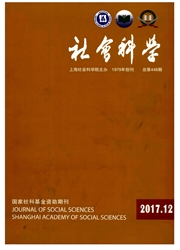

 中文摘要:
中文摘要:
今本《荀子》既说“性恶”也说“性朴”,且“性恶”说仅出自《性恶》篇。该“性恶”说与同篇及他篇的“性朴”说相冲突,与同篇中反对抽象化、价值化、无符验化地论人本性的立场相矛盾,且“性恶”结论前的论证文字实不能有效证明“性恶”而只能证明“性不善”以辩驳性地反对孟子“性善”说。荀子是“性朴”论者,他在驳斥孟子性善说时所建构的是“材一性一伪”及伪性有别、伪材有关、化性起伪、积伪成圣的学说,并强调治世必须依人性、人情而教化与管治并行。《性恶》篇的“性恶”系“性不善”之讹,始讹时间约在西汉末年汉成帝时;以“性不善”校勘之,可厘正荀子文本、廓清荀子思想、恢复荀子声誉而揭开此二千年的学术谜案。
 英文摘要:
英文摘要:
Today's version of the book Xurtzi contains such teachings as "evil human nature" and "plain human nature". The teaching of an "evil human nature" lies only in the Chapter of "evil human nature", which is contradictory with the teaching of a "plain human nature" in the same chapter that denies an abstract, value-carrying and non-semiotic human nature, and the rest chapters of the book, too. Moreover, the argumentative texts prior to the conclusion of an "evil human nature" can not testify its validity while they only serve to argue for an "unkind human nature". Xunzi was an upholder of the teaching of a "plain human nature" and he advocated the doctrine of "talent-human nature-behavior", including the difference between behavior and human nature, the connection between behavior and talent, behavior in accordance with changes in human nature and sanctification of accumulated behaviors while refuting Mencius' teaching of a "good human nature" Xunzi also stressed governance must go in line with human nature and disposition and both education and governance should be carried out at the same time. "Evil human nature" in the homonymous Chapter is a wronged interpretation of "unkind human nature" dating back to Emperor Cheng of the Western Han Dynasty. To collate Xunzi with "unkind human nature" can rectify Xunzi's texts, clarifying his thoughts and restore his reputation, putting an end to the two-thousand-year-long academic enigma. The collation of Xunzi's "evil human nature" and the discovery of "on human nature" by Jiang Wang of the Northern Song Dynasty constitute the paired criticisms to Mencius' teaching of a "good human nature". Therefore, it is Xunzi's teaching of human nature and hypocrisy rather than Mencius' that complies with Confucius' teaching of human nature and temperament while Mencius' teaching of a "good human nature" as veiled in "speaking for the sake of instruction" is actually a dualist approach, from which
 同期刊论文项目
同期刊论文项目
 同项目期刊论文
同项目期刊论文
 期刊信息
期刊信息
